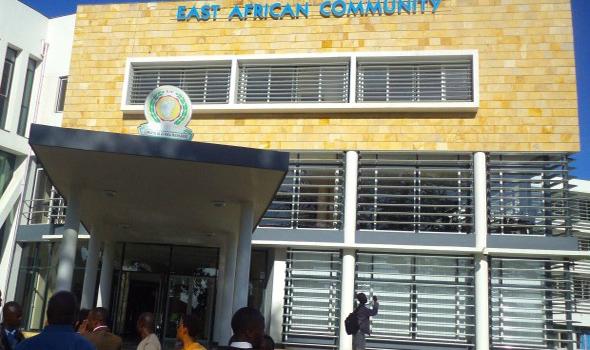The East African Community’s 14th Meeting of the Sectoral Council on Agriculture and Food Security (SCAFS) has ended in Arusha, Tanzania.
The meeting that was chaired by Kenya’s Chief Administrative Secretary for the Ministry of Agriculture, Livestock, Fisheries and Cooperatives Mr. Lawrence Angolo Omuhaka closed on Friday June 25, 2021.
Speaking during the meeting, Mr. Omuhaka, noted the urgent need for the region to implement harmonized policies and to operationalize regional instruments in order to guarantee sustainable agricultural production, trade in commodities and to attain sustainable regional food and nutrition security.
Comprehensive Africa Agriculture Development Programme (CAADP)
Africa’s policy framework for agricultural transformation, wealth creation, food security and nutrition, economic growth and prosperity for all dubbed the Comprehensive Africa Agriculture Development Programme (CAADP) was also brought to attention during the meeting.
Mr. Omuhaka while commenting on the policy noted that AU Member States were required to demonstrate their commitment to the ideals and principles of CAADP, by following relevant CAADP processes.
“This will ensure that there are appropriate actions to achieve accelerated agricultural growth and transformation for shared prosperity and improved livelihoods for the population on the continent, by 2025,” said Mr. Omuhaka.
He further noted with concern that the Second CAADP Biennual Report submitted to the AU General Assembly in February, 2020 showed that the Eastern Africa region, with the exception of the Republic of Rwanda, was not on track on most targets.
He added that the report portrays the absolute and relative performance of countries and indicates that there was a lot to be done in order to transform the agricultural sector in Africa.
“As a region we should applaud the Republic of Rwanda for emerging the best performing country on the continent for the second time, scoring 7.24 which was above the minimum score of 6.66 required to be on-track”, he added.
Agricultural trade and industry
Director of Productive Sectors Mr. Jean Baptiste Havugimana who spoke on behalf of the EAC Secretariat noted that more than 70% of the industries in EAC were agro-based, including production of agricultural inputs; while 75% of the traded goods are agricultural commodities and products.
According to him, linking agricultural trade and industry is imperative in promoting agricultural production as industries provide the market for agricultural produce while trade delivers processed agricultural products to the market/ consumer.
He highlighted the need to promote and enhance commercial agriculture, urging the region to draw lessons from the COVID-19 pandemic, particularly on the need to promote local industries.
Importing products
Mr. Jean brought to attention the issue of the East African region relying too much on importation of products yet it has the potential to produce its own. He observed that the region had been importing many products from outside prior to the pandemic, yet it was possible to produce them locally.
“Textile industries need to be promoted instead of depending on import of used cloths. It is necessary to promote local consumption and procurement of locally produced goods as emphasized by the Heads of State,” he noted.
Food Security
According to the East African Community, there was commendable commitment and progress towards meeting global and continental nutrition targets, as efforts to reduce levels of malnutrition were evident across all the Partner States.
However, the Sectoral Council noted that levels of stunting, underweight and anaemia are still high above the targets set under the CAADP/Malabo Declaration. The meeting therefore noted the need for the Partner States to direct more technical and financial resources in projects and programmes established to enhance food and nutrition security.
Aflatoxin prevention and control
The Sectoral Council directed the Secretariat and urged Partner States to fast track implementation of the EAC Aflatoxin Prevention and Control Strategy.
Aflatoxin contamination poses a serious threat to human and animal health, and to the economies of the EAC Partner States. The strategy contains recommendations on interventions required to mitigate impacts and effects of aflatoxin along the food and feed value chains.
Pest management
During the meeting, the Sectoral Council adopted Standard Operating Procedures for operationalising Pest Risk Analysis (PRAs) for maize, beans and rice.
In November, 2019, the Council of Ministers approved harmonised procedures for conducting Pest Risk Analysis (PRAs) for maize, beans and rice. Subsequently, development of harmonised Standard Operating Procedures (SOPs) for inspection of grain (maize, beans and rice) were required to operationalise the PRAs.
In addition, the Sectoral Council adopted seven additional priority crops – banana, cassava, potato (ware and seed), sorghum, soybean, groundnuts and pineapple and directed the Secretariat to embark on development of Pest Risk Analysis (PRAs) for the selected crops.
Livestock development
The Sectoral Council directed the EAC Secretariat to develop programmes and dedicate resources to promote development of priority livestock value chains, given the sector’s importance in the economies of the Partner States.
The meeting also directed the Secretariat to finalise and widely disseminate the EAC Strategy for the Control of Transboundary Animal Diseases and Zoonoses, 2020-2024, as well as development of guidelines and standard operating procedures for cross-border surveillance, preparedness and response to transboundary animal and zoonotic diseases.
The strategy and guidelines are expected to spell out ways and means for the Partner States to collaborate in mitigating and managing outbreaks of major trans-boundary animal and zoonotic diseases such as Food and Mouth Disease (FMD), Rift Valley Fever (RVF), Peste des Petits Ruminants (PPR), Anthrax, Rabies, Trypanosomosis, Newcastle Disease (ND), African Swine Fever (ASF) and Theileriosis among others.
The Ministers also observed the need for the EAC Secretariat to develop programmes and dedicate resources to promote development of fisheries and aquaculture in the EAC region.
The Ministers appreciated and took note of the different initiatives coordinated by the Lake Victoria Fisheries Organization (LVFO) for the sustainable management and development of fisheries and aquaculture in the EAC.
